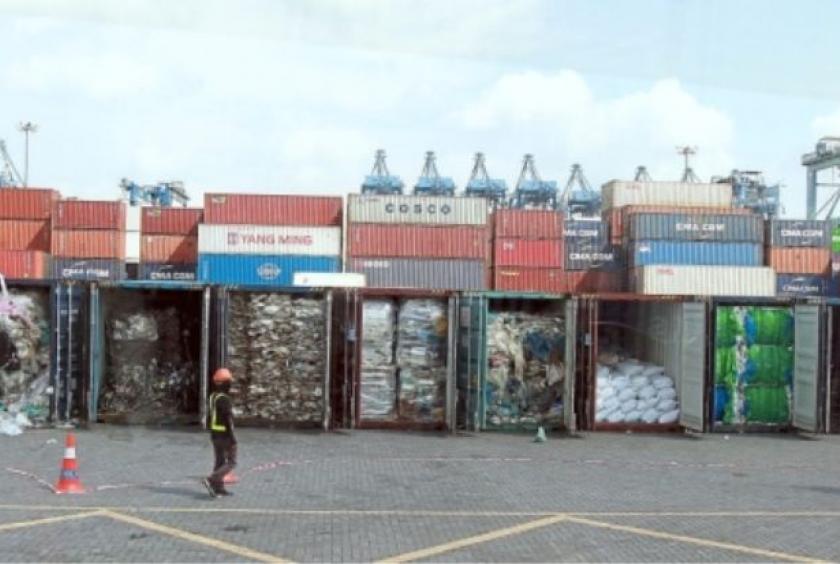PORT KLANG (The Star) – Even Bangladesh is sending its contaminated plastic waste to Malaysia.
The government will be sending 450 metric tonnes of contaminated plastic waste in 10 containers back to their countries of origin immediately.
Besides the one container from the South Asian country, the other nine containers will be shipped back to Australia, the United States, Canada, Saudi Arabia, the United Kingdom, Japan and China.
In April, five containers were sent back to Spain.
And the Ministry of Energy, Science, Technology, Environment and Climate Change (Mestecc) has a strong message for the “traitors” responsible for the waste coming into the country.
Mestecc Minister Yeo Bee Yin said they will be responsible for footing the bill for the shipping of waste back to the originating country.
Yeo said that under the Environmental Quality Act 1974, those responsible for bringing in the waste will have two weeks to ship it back.
It this fails, they will be brought to court.
They will only use the Basel Convention as a last resort, with the exporter of the waste having to foot the bill of shipping, though this is a longer process, said Yeo.
“Get the traitor to pay first. Basel is longer. But most of the time, we can get the traitor,” she told a press conference yesterday.
Earlier, Yeo witnessed the full inspection of nine containers at Port Klang.
To date, 123 containers have been inspected through joint operations between several agencies, including the Department of Environment, the customs, the police, Port Klang Authority and the Department of National Solid Waste Management.
The waste smuggled in was falsely declared as recyclable.
Clean scraps that can be recycled are still allowed to be imported into the country, with the industry said to be worth billions.
Mestecc is also running an inspection process on more than 50 containers that have been brought in illegally into the country.
Altogether, a total of 3000 metric tonnes from 60 plastic containers are expected to be shipped back once the containers have been fully inspected, said Yeo.
The Basel Convention is an international treaty aimed at reducing the movement of hazardous waste between countries.
Yeo said the process of inspecting the waste was both laborious and costly.
She also reiterated that Malaysia would not be a dumping ground.
“We will fight back. Even though we are a small country, we cannot be bullied by developed countries.
“We cannot be a dumping ground for developed countries. Malaysians deserve as good an environment
as people of the developed world,” she added.
For now, the government is focusing on what is happening in Port Klang. Later, it will focus on other ports, including the ones in Penang and Johor.
She said the scale of the problem seen in Malaysia today was likely just the tip of the iceberg.
“It will take until the end of the year at least for a full clampdown, though there will be people who will want to try their luck again.
“But we will continue to go all out,” she said.
She pointed out that the entire world needed to rethink the problem of waste management and how recycling is viewed.
“We hope each country takes care of its own garbage. You dispose of your garbage, I dispose of mine,” she said.
Yeo also said they had discovered a recycling company from the UK that had exported 50,000 metric tonnes of plastic waste into Malaysia over the past two years.
China banned plastic imports earlier last year, leading to a huge impact on the global recycling system.
This led to a number of Chinese companies relocating their operations to Malaysia, with some setting up shop here as soon as the Chinese government announced the ban in 2017.
News reports said Malaysia’s imports of plastic waste from its 10 biggest source-countries jumped to 456,000 tonnes between January and July 2018, versus 316,600 tonnes purchased in 2017 and 168,500 tonnes in 2016.
Most of the plastic scrap coming into the country is contaminated and low-quality plastic from developed countries that is non-recyclable.
Reference : https://elevenmyanmar.com/news/malaysia-makes-its-stand-on-waste-asianewsnetwork

